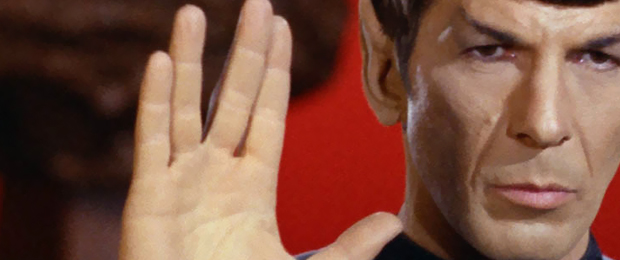There are few characters that are eternal, that embody so well the universal spirit that they become part of the cultural memory. Robin Hood and Sherlock Holmes come to mind, and Arthur Pendragon, and Monkey. And Spock.
Before there were any nerd icons, in an era when the socially awkward, the physically mediocre, the aesthetically unusual, were still having sand kicked in their face, Spock appeared, and everything changed.
Half human, half Vulcan, the science officer on the USS Enterprise in many ways represented the heart of the philosophy of the Star Trek universe. The conflict between Spock’s Vulcan ideals of intellect, logic, curiosity and his base human emotions, symbolized humanity’s own struggle; from our primitive, predatory, voracious and violent origins to a future governed by ideals, reason, equality and discovery.
To generations of young people, to those who felt uncertain of their place, who felt part human, part alien, to thinkers, wonderers, outsiders everywhere, Spock was a new kind of hero.
Leonard Nimoy was Spock. The two are inseparable. Even when hosting Mysteries Of The Unexplained in the 1970s, or playing Dr William Bell in Fringe in 2012, or appearing in Hollywood TV westerns in the 1950s, before Star Trek was even thought of, the Spockness of Leonard Nimoy shines through. Or the Leonard Nimoyness of Spock. Others have played and will play the role, but Spock will always be Leonard Nimoy.
We can consider those who do play Spock (on screen or in life), the eternally curious, the seekers within, the seekers without, ever discovering, vastly knowledgeable but always an innocent, with a genius sometimes perplexed by the merely human, as an homage, a tribute.
Leonard Nimoy 1931-2015
Poet, Photographer, Artist, Actor, Director, Singer, Songwriter, Seeker.
The miracle is this: the more we share, the more we have.
That is the exploration that awaits you! Not mapping stars and studying nebula, but charting the unknown possibilities of existence.
Logic is the beginning of wisdom, not the end.



